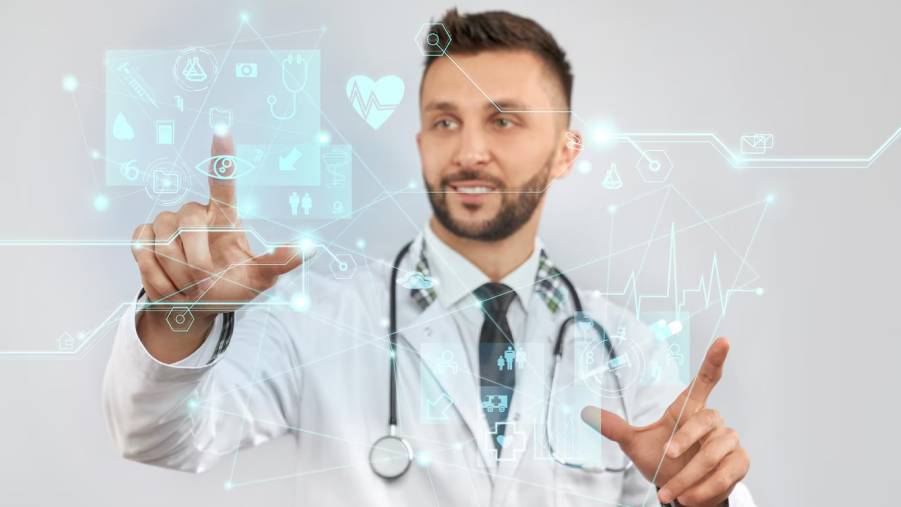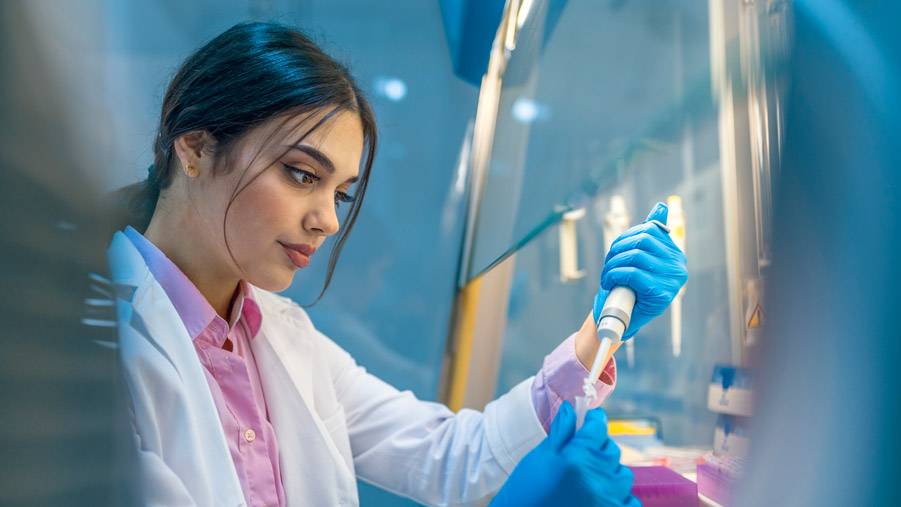
Data science has proven extremely useful for extracting actionable insights from data in the current healthcare market. Health institutes generate vast amounts of data when serving prominent people in our modern era. Electronic medical records, CRM databases, clinical trial databases, billing, wearable devices, and scientific articles generate so much data every 10 seconds that they are impossible to process without advanced technologies and cutting-edge techniques.
Today’s healthcare industry finds excellent use of data science, a field of study that focuses on extracting meaningful insights from data.
Big Data and Machine Learning in Data Science
Healthcare has become more data-driven thanks to Big Data and Machine Learning. It is mainly due to new intelligent software devices and solutions that improve healthcare services that healthcare data growth is accelerating.
Data Science Applications In Healthcare:
Medical Image Analytics
Data Science is revolutionising the field of image analytics. Analysing medical images can identify even the tiniest microscopic defects. Industries that generate ideas on a large scale can significantly benefit from image analytics.
With the advent of deep learning techniques in Data Science, software programs can learn to understand and interpret X-rays, mammographies, MRIs, etc.
Using the software, bacteria detection is automated, making it more efficient. The program recognizes bacteria stamps and differentiates them into three classes based on the provided and processed datasets. As a result, MicroTechnix enhances the speed and efficiency of bacteria identification processes, avoiding human errors as the software is fully automated and does not need supervision.
Quantified Health
Quantified Health is a relatively new concept, which refers to the processing and analysis of data directly from consumer wearable devices. People continuously create a large set of health data with the ever-increasing ownership of wearables, apps, and sensors that track heartbeat, temperature, sleep and step patterns, water consumption, or mood states.
Cutting-edge technologies based on Data Science techniques and methods can help analyze provided data in real-time, detecting any deviations from the prescribed norms and reporting them to the users and their attending physicians.
Data Science for Post-care Monitoring
Any surgery or complex treatment comes with the risk of complications. Once the patient leaves the hospital and is no longer under constant medical supervision, it becomes difficult to detect any anomalies or deviations in their condition in case they occur.
Predictive Diagnosis and Disease Prevention
Data-powered predictive systems use historical data, learn from them, identify patterns, and make accurate predictions.Tracking devices make it possible to detect a problem before it gets out of hand. The system identifies various symptoms, recognizes habits and risks of diseases, and creates meaningful predictions.
Data Science For Drug Discovery
Drug discovery is a costly and time-consuming process. According to a Pharma report, the average cost of successful drug development is estimated to be $2.6 billion, and it takes at least ten years to create an efficient drug and bring it to the market. Moreover, data science algorithms can simulate how the drug will act in the human body without long laboratory research.
NLP for Electronic Health Records
Electronic Health Records (EHRs) are medical data stored in digital format. Using the Natural Language Processing (NLP) technology, which can process and understand natural language, old unstructured hand-written records can be kept in electronic healthcare systems.
NLP-powered systems can process unstructured data, analyze the grammatical structure, determine the meaning of the data and summarize the information.
Biometrics in Healthcare
Based on Computer Vision technology, Biometrics software scans particular body parts and matches them with available patterns.
For instance, they reach a patient’s face to a previous biometric sample. Mostly, hospitals use biometrics systems for patient identification at check-in to promptly access patient documents and records.
By 2025, the market for healthcare biometrics is expected to reach $14.5 billion, according to Grand View Research.
With the proliferation of Data Science and the emergence of numerous data-powered applications, the Healthcare industry stays at the forefront. It actively implements data-driven solutions to provide its clients with a better lifestyle and personalized services. A certification program in Data Science can help to settle in your career.



